Are you homesteading within city limits where regulations don’t permit raising chickens? Or perhaps, you’re in the beginning stages of homesteading and not yet ready to incorporate chickens? Maybe chickens just aren’t a homesteading aspect that piques your interest?
Whatever the case, if you’re not in a position to have fresh eggs sourced directly from your backyard, and you want to make sure you’re supporting farmers who raise chickens humanely, this article covers steps you can take to do so: Why it matters, what present day egg-laying chickens experience, where to find ethical eggs, and what labels to look for when buying.

When I was growing up, my parents decided to get my siblings and me chickens of our own. I realized at a young age that chickens are intelligent and caring animals that are often misunderstood and characterized as dumb and slow.
Benefits of Raising Chickens
Chickens are increasingly being recognized, not just by homesteaders, but scientists at large, for being intelligent and having complex social structures. In an ecological setting, chickens provide excellent pest control (a major benefit of raising chickens that is why my family adopted a few). They eat insects ranging from ticks to grasshoppers, and eat other prey like small snakes. Chicken poop is also excellent fertilizer to the soil and garden.

Natural Habitats
Chickens descended from junglefowl and have been raised by humans for thousands of years (literally). They have played an important role in human societies for a long time.
With junglefowl being highly tolerant of diverse landscapes and ecosystems (from disturbed forest edges, to mangroves and fields), it was easy to habituate them in human settlements.
What’s more, junglefowl were playing the exact role in a nonhuman ecosystem that they played within human society (providing pest control, fertilizer, and as food).
The point is, junglefowl have always been free roaming, prefer a range of roosting sites, and tend to live in smaller groups. Over the long period that humans have domesticated junglefowl, people have mostly kept them free range, simulating their natural history. It has only been since the late 1800s that chickens have begun to be mass farmed on a scale that mimics mass produced items like clothing or tools.

Factory Farming
Mass farming was surely started with the good intentions of providing food to an ever-increasing human population. Sadly, it is a double-edged sword that has overlooked the welfare of chickens. What is happening on chicken farms is unbelievably inhumane. Part of the evolving cultural viewpoint that chickens are dumb undoubtedly has come from an attempt to justify their mistreatment as a species to benefit humans.
In factory farms, chickens are given no rights. They are packed together in claustrophobic living conditions with no access to sunlight, or even the ability to move. One article indicates they are stuffed in wire pens (10 chickens to a pen) that are less than the size of a file cabinet drawer. The conditions are without a doubt, horrific.
I highly encourage taking a step toward awareness and researching the conditions of factory farmed chickens. The first step to a positive change is simply being aware of the issue at hand.

Egg Labeling
Let’s discuss what egg labels you can look for to support ethicall raised chickens. To start, it is best practice to buy locally-sourced eggs from the farmer or homesteader down the road, at the farmers market, or online through an online marketplace to see who has a surplus nearby. If this doesn’t feel like an option for you, read on.
Egg labeling can be difficult to decipher, especially with the unfortunate, present-day phenomenon of “greenwashing” products (providing intentionally misleading claims about a product being environmentally friendly). From here, we’ll go into more detail about the most common labels one will find on egg cartons, what they mean, and why most of them are greenwashed.
By decoding these labels, it will become increasingly obvious why supporting factory raised chickens is undesirable.
Organic
The Organic label is USDA-regulated and is more an indication that addresses environmental issues — not the well being of the egg-laying hens. The food the hens are fed has to be USDA-Certified Organic, which is a positive for the chickens in question, but it has no regulation for the treatment of the hens and their living space requirements. There is a statement in a blog by the USDA that says the hens must have “liberal access to the outdoors” but there are no standards in place for it, and it’s up to the discretion of the farmer. This could mean there’s an opening into a 1 square-foot outdoor space that over 1,000 chickens have to share.
Non GMO
The label “Non GMO” is USDA-regulated and is essentially the same definition as the Organic label. It indicates the chickens may not be fed with any genetically modified organisms or food. It has no regulation on the standards of care for the chickens.
Vegetarian
Vegetarian fed is a USDA-regulated term that indicates the chickens are not being fed animal byproducts, like ground chicken. They are not necessarily prevented from eating insects, but it’s likely caged chickens are not given access to eating insects anyway. As already covered, chickens are naturally omnivorous and insects are a vital part of their diet. Again, this label has nothing to do with how the chickens are treated.
Cage Free
Cage Free is a USDA-regulated term that means hens must be able to move freely within the building/hen-house and have unlimited access to food and fresh water. This is a very greenwashed term, as there are no space requirements in place. Moving around freely means they are not in a wire cage. It does not mean they are actually able to move.
Farmers could stuff thousands of chickens into a barn and give them no room and still be meeting the standards of Cage Free. It doesn’t institute care requirements around cleanliness, or providing access to roosts.

Free Range
This is also USDA-regulated and requires hens to have continuous access to the outdoors during their production cycle. The outdoor area could be fenced and covered with netting. Similar to the trend in all the previous label breakdowns, Free Range does not stipulate what having outdoor access means (i.e., how much space is required or the cleanliness conditions). It’s another greenwashed label that enables essentially any factory chicken farmer to put Free Range on their cartons, even if the chickens only have access to a 5 square-foot enclosure for thousands of chickens maybe five minutes a day.
Pasture Raised
This is not a USDA-regulated term which means that anyone can put this label on their cartons. It is solely a marketing term and has no regulatory definition. Greenwashing at its finest, unfortunately.
Natural Label
This label is USDA-regulated and means that meat and egg products are minimally processed and have no artificial ingredients. It has nothing to do with the actual treatment or living conditions of the hens. And I should point out, this label means little as eggs do not possess artificial ingredients.
No Added Hormones
This is quite interesting and another excellent case of greenwashing. In the 1950s, federal regulations were put in place that banned the use of growth hormones in poultry. So a carton that says “no antibiotics” or “no hormones” is trying to make buyers think other companies are using them — when in fact, no one is (legally).

Humane Certified
This is the one to buy. The Humane Certified label challenges all of the previous labels and has created their own humane standards of care for farm animals. This is not a USDA-regulated label, however, and because of this, Humane Farm Animal Care (HFAC) was launched in 2003. It has gathered veterinarians and animal welfare scientists to create the labels it utilizes.
I was personally skeptical of the validity of HFAC and dug into more research behind this nonprofit to make sure it wasn’t just another greenwashed label. HFAC seems to be a legitimate organization created for the welfare of farm animals, as the name implies. They are endorsed by the American Society for the Prevention of Cruelty to Animals, as well as having a board of directors and a scientific committee who write the actual definitions they use.
Here’s what their labeling means.
- All hens are vegetarian fed by USDA standards.
- Any Certified Humane eggs that are also Cage Free are required to follow this not-all-inclusive definition: 1.5 square feet of space per hen, litter for dust-bathing, perches, ammonia levels less than 10ppm, which means the scent is imperceptible (this automatically creates a cleanliness standard, indicating all enclosures are regularly cleaned and maintained).
- Any Certified Humane eggs that are Free Range or Pasture Raised are following a definition that requires hens to have a minimum of six hours of outdoor access per day, with a minimum of 2 square feet of outdoor space per hen.
For more information on all that is detailed and required via the Human Certified labeling, please check out this PDF.
The Human Certified labeling covers a lot of bases that the previously explained labels do not. The organization has a mission of providing farm animals with environments that meet their emotional, mental, and physical needs, allowing them to express natural behavior.
While Humane Certified eggs are size-neutral, meaning the scale of the farm is irrelevant to receive Humane Certified labeling, most of their egg farms are smaller, because meeting these requirements can be rigorous. It means small farmers are being supported more.
These are some brands that are Humane Certified.
- Vital Farms
- Sunrise Fresh
- Nellie’s
- Pete & Gerry’s
There is a long list of brands on the Humane Certified website that you can research. Likewise, there is a tool to find out which grocery stores are selling these brands. I find most major grocery stores have at least one Humane Certified egg brand available.
Doing Our Part
As homesteaders, we want to make a positive impact on our environment, support local efforts and small farmers, and be self-sufficient. If raising chickens isn’t an option right now, there are numerous options to make sure you are making an informed decision and supporting ethical practices.
I encourage everyone to do their own research before making egg buying decisions. It is empowering and allows you to be aware of what you’re supporting when you buy eggs off the shelf at the grocery store.










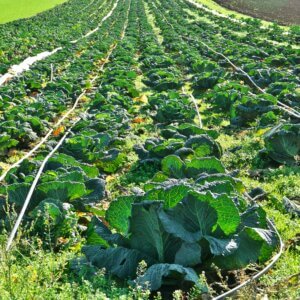






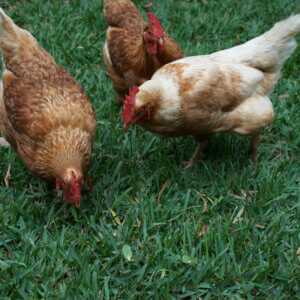





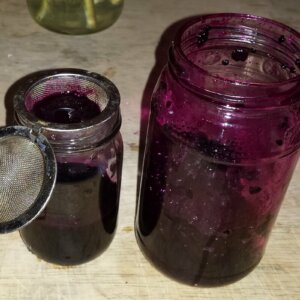
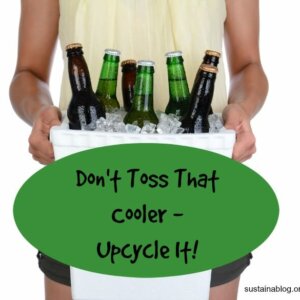







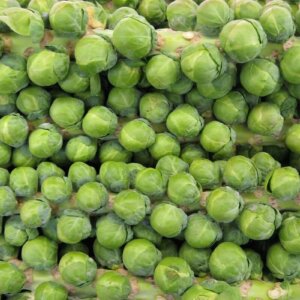
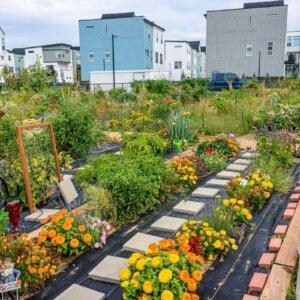

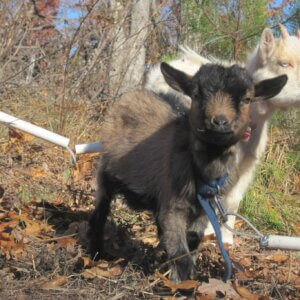





Leave a Reply